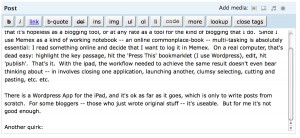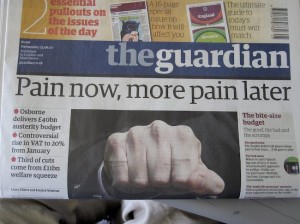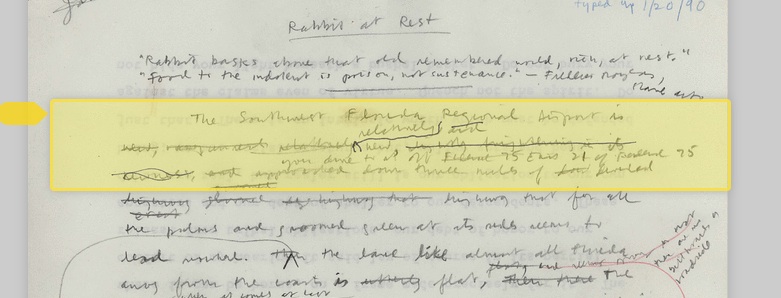As part of my ongoing project to try and assess the utility of the iPad, I’ve been using it as much as possible in the course of my day. We’re now several weeks into the experiment and I’ve noticed something interesting: I’ve been blogging less. And the reason is simple: the iPad is hopeless as a blogging tool, or at any rate as a tool for the kind of blogging that I do. Since I use Memex as a kind of working notebook — an online commonplace-book — multi-tasking is absolutely essential: I read something online and decide that I want to log it in Memex. On a real computer, that’s dead easy: highlight the key passage, hit the ‘Press This’ bookmarklet (I use WordPress), edit, hit ‘publish’. That’s it. With the iPad, the workflow needed to achieve the same result doesn’t even bear thinking about — it involves closing one application, launching another, clumsy selecting, cutting and pasting, etc. etc. Zzzz…
There is a WordPress App for the iPad, and it’s ok as far as it goes, which is only to write posts from scratch. For some bloggers — those who just write original stuff — it’s useable. But for someone like me it’s not really helpful.
Another quirk: when blogging with WordPress (and, I guess, Blogger) one’s composing inside a text box — as here:

Note that when the draft post exceeds the size of the box a scroll-bar appears. On the iPad, there’s no scroll bar. “No problem”, you think. “Just grab the text and move it up to make room”. Not possible: all that happens is that you move the entire web-page. Not sure if this is fix-able within the parameters of Apple’s touch interface, but at the moment it makes the editing of longer blog posts effectively impossible.
(And as for getting an image into the post to illustrate a point — as above — well, forget it.)
My hunch is that there’s an opening for a serious iPad blogging App. The big question, I guess, is whether it’s possible to do one within the confines of the present OS.
All of this merely confirms, of course, that the iPad has been conceived as essentially a tool for consumption rather than creation — and that users like me are, really, rather quaint exceptions with little marketing significance. Steve Jobs might say that we should stick to our multi-tasking laptops; and, given the huge sales of the iPad, who’s to say that he’s wrong?





